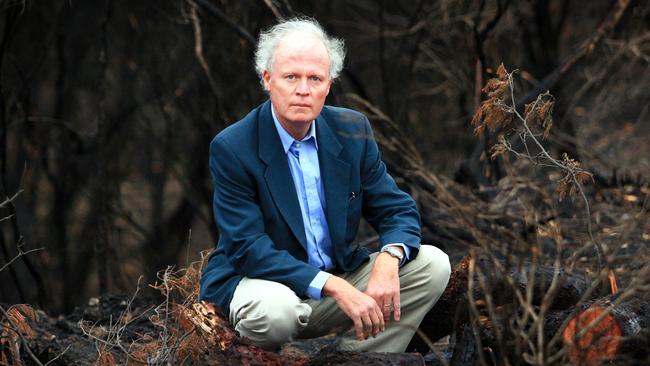Talking out anxiety is a good way to manage, says psychologist Dr Rob Gordon
It is perfectly normal to feel anxious about bushfires, a leading psychologist says, as he reveals ways to help cope with the stress.

Tasmania
Don't miss out on the headlines from Tasmania. Followed categories will be added to My News.
PEOPLE who are feeling anxious about bushfires can benefit from talking to their friends and family about their feelings and keeping a busy routine, a leading clinical psychologist recommends.
Dr Rob Gordon worked with communities and individuals affected by the 2013 Tasmanian bushfires and the 2009 Victorian Black Saturday fires.
He said it was normal for people to be anxious in the face of the threat of bushfire — particularly if they had been through similar experiences before.
MORE BUSHFIRES NEWS:
FIREYS DIG IN AHEAD OF SEVERE FIRE DANGER
BUILDING LOSS A REMINDER OF FIRE’S REACH
BLAZE DELAYS $300M WIND FARM’S PROGRESS
GALLERY: LATEST BUSHFIRE PICTURES
For some people, just the smell of bushfire smoke was enough to provoke an emotional reaction.
“Anxiety revs us up for action,” he said. “If we can’t act, all of that arousal is likely to convert to irritability and anger,” he said.
“It’s very important for people to go beyond their feelings, have a look at what’s going on in their minds.
“A good way for people to do that is to compare notes, to talk about it with their friends and family about what’s going on for them.
“Anxiety is about speculation and imagination, about possible things in the future and that’s harder to deal with.
“What I’d ask people to do is have a think about your anxiety. Are you just generally anxious and uncertain or are their specific threats that you’re anxious about and can take action about?”
MORE NEWS:
COUPLE PUTS HEAT ON AURORA OVER TARIFF CUT
FISHERMAN LANDS HEFTY FINE FOR RESERVE CATCH
BIG CAT PROWLS AROUND HOBART WATERFRONT
COUNTING FAULT LED TO AD SPENDING ERROR
Keeping a healthy routine was also important to minimising the impact of potentially distressing events on mental health, Dr Gordon said.
“Breathe deeply, relax, try to talk people who understand, look after yourself, stop and take a break, eat well, drink well.
“Make lists, make plans, go to community meetings, listen to emergency broadcasts, get information and do something.
“Seek social support, be with other people, be with people who care about you, be with people you can talk to so you don’t bottle it up in your own mind.”
One part of that was to keep informed, but not to become completely absorbed in media reports.
“Try to do something absorbing and enjoyable. Listen to the news bulletin, read the paper and then go about your normal life and trust that the emergency services will look after people.”
And he said it was normal to grieve the loss of beautiful natural areas. One of the ways of managing that grief was to again to talk with people who understood.
Resources to help people build their emotional resilience and deal with anxiety are available on the Department of Health and Human Services and the Australian Red Cross websites.


